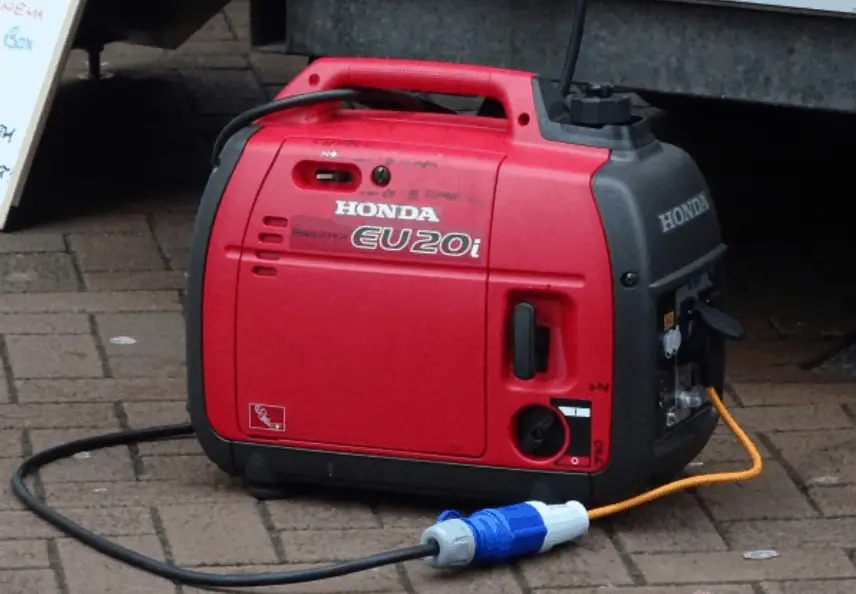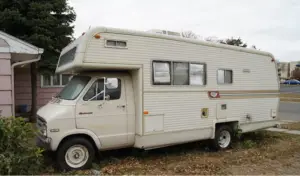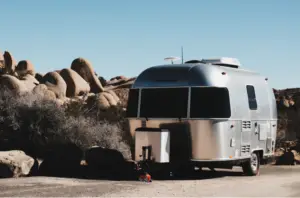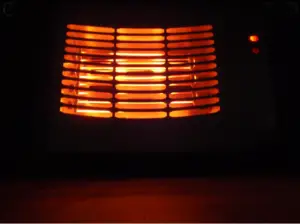Not long ago did i notice a family totally fed up of the noises their rv generator was making. Not only were they having issues, but their neighbors also were annoyed. Rv generator making too much noise can be hard. This is the same reason, that we see that some of the parks do not allow rv generators. A good, quite rv generator is all what you want when boondocking. Fortunately for new buyers, there are lots of options in rv generators that make less noise.
One can quite an RV generator by using any of the below methods,
- Make use of soundproof box
- Use soundproof generator compartment
- Muffler to make the generator quieter
- Use high damping mounts for generator
- Connect 2 smaller generators in parallel than one larger
A good branded rv generator will make less noise but if you are stuck with an old one that was working okay, but has started making noise then you can try few things to make it quieter. People try different things so as to make sure the rv generator makes minimum noise. A rv generator making noise above 70 decibels should be considered as a disturbing one. Most new branded portable generators will make noise that’s below 60-65 decibels. That’s like a noise produced by a laptop or a table fan. If you are stuck with a generator that’s making that large noise, then you can try one of the below methods and make it less noisy.
1. Using Soundproofing boxes
One of the ways a RV generator can be made quite is by using a soundproofing box or enclosure. A RV generator that is making quite a lot noise can be made to reduce that noise to a decibel level good for human ears. The box that you will make for your RV generator will be basically made up of wood with a sound dampening material or soundproofing material. With such a enclosure, you however need to be more cautious. A professional may help you build it, but if you want to go DIY; make sure you follow certain things before making it yourself.
An outlet for exhaust has to be there. so that, exhaust fumes go out properly and do not accumulate within. An inlet opening for a cooling fan or air circulation, so that it does not result in excess heat. A door that is designed and positioned so that it, it is always from your camping site. Sound reflectors can also be used and should be positioned so that sound get away from you location. When camping at campsite, you could be in a fix though, since there may be people in all direction. Unless you have that edge spot where-in one direction nobody is present and you could position the sound that way.
Building such a sound dampening enclosure can be tried, but it may not work for all. Also, you need to think about the cost it will involve. If you have had such a experience of building enclosures previously then you will be better off. Or if you know anybody in your family, friend circle who would do the work for you. Remember, this may not turn out to be as professional as it should be , but this method does work for people. Also, it depends on the kind of sound dampening material you use.
At times, people are so annoyed by the noise of their old generator, they just go ahead and buy new portable less noise making generator for their rv. And that makes sense at times, but if you recently shopped for one, that itself is making the noise then trying this method may be a sensible option. But, yes, do take into considerations all the factors we discussed above.
2. Soundproofing generator compartment
When the rv generator is placed inside an compartment, it can be hard to make much changes to it, Working on the compartment can also be tricky. Since it comes as-is from the manufacturer, any changes can land you out of warranty. Thus, you need to be sure before you make these changes. Figuring out how the noise is generated can help you putting in some noise absorbing material inside the compartment and reduce the noise.
Some other things that you could do inside the compartment could be adding resonator to the exhaust or adding sound proofing mufflers to the walls. These are try and test kind of methods. The most basic thing will be to identify whats the root cause of the noise in that compartment and than try a solution. There are many sound proofing experts out there that can help you with this. An expert who has had experience in this should be a good option than trying this as DIY action.
The sound produced in the generator compartment can be enough to penetrate and disturb you in the rv and can also annoy your neighbors in campsite. When you buy a brand new rv, the compartment may not be well soundproofed and will have basic installations. Initially, it may not produce that much sound but as time progresses you may face the issue. Remember, a noise from rv generator could be because of various reasons like the noise coming from its fan.
A high speed fan running inside the rv generator can produce enough sound that can propagate through he generator compartment to the passenger area. Exhaust can also produce a lot of noise, depending on how long and where the pipe ends, the noise can well enter into the passenger area and may need a different solution other than just fixing on sound proofing material.
3. Using muffler to quite the generator
Using muffler can help in reducing the rv generator noise considerably. This method works for some people but may not work for all. They may not reduce high noise, but works well for low noises. Also, the prices of installing the muffler can be a reason you may not want to try this. This can be done as DIY thing but again you need to be sure that you don’t indulge in things that could take away your RV generator warranty.
The exhaust pipe will give a noise at engine frequency, if there isn’t enough muffler. Exhaust pipe, if not extended beyond passenger area then the noise will bother you and hence getting the mufflers can be a solution. A generator may already have a muffler, in such a case make sure its big enough. And if not, try to get a bigger one for your RV generator.
4. Using High damping mounts for generator
The generator will vibrate at the motor and engine frequency which will generate noise. The mounts used on generator can damp the noise provided they are tuned for that. Most of the times, the mounts are not capable as they also need to be tuned for rv road vibrations. As a result, the noise from the natural vibrations of generator result in producing noise that can penetrate out of compartment and annoy you.
Many times, such noise wouldn’t come at early stages of usage, as initially the mounts may be good enough for handling the variations and canceling the noise. If the rv generator is old then check for mounts , if they are damaged or need replacement. Also, using good quality mounts can help reduce such noise.
5. Use two smaller generators in parallel rather than one large
This technique is a great method to avoid noise as well as provides other advantages. So, how can two generators make less noise ? Well, higher the watts more is the noise, a 5000 watts generator will make more noise where as if you try 2 smaller watts (say 2000), they are bound to make less noise. Also, at time you will not need full 5000 watts generator and you can do away with just 2000. So, running a single 2000 watts will obviously produce much less noise. A small generator like this one makes very little noise and is less weighing as well.
Also, having such a combination is great for handling, they are easy to carry and can be well managed. If you have a travel trailer you can place them on truck and thus keep the noise away from trailer. Also, using a 5000 or higher watts may not give you full capacity and it will always be lower then whats available full.
I have personalty not tried this technique since my requirements have always been different. But, have come across people who have tried such parallel connection and it seems that’s the way-to-go, if you are in that kind of usage range. Such a combination can also be great for fuel and your overall fuel economy will be good. Space is also saved with 2 smaller generators. Thus, using such a combination can really make sense for some people but not for all. A big family camping may not find this kind of approach suitable.
Few other tips and things you can do, to keep the rv generator quite
1. If the generator is a portable one, then try installing it positioned so that exhaust pipe and inlet pipes are away from where you are camping.
2. Make sure you don’t place the rv generator on wooden surface. This can produce noise due to vibrations. The noise is amplified due to this combination
3. You can also make use of water. A hose pipe dipped inside a few gallons of water may be connected to the exhaust pipe. Take sufficient care to make sure water does not enter the generator.
4.If the exhaust pipe of your rv generator is horizontal, then that can be another reason why the generator makes the noise. Positioning it vertically can reduce the noise to some extent.
5. Buy a quieter generator. Yes, if you are giving up on the existing generator that is making lot of noise or its too old now, then while you are about to make that new purchase just focus on this one thing and buy the generator accordingly. Most branded generators will be little more costly but will give you peaceful times. With new advances in technology, you will get those portable generators that make minimum noise and thus you will not need any of the above tweaks to do.
In case you are looking to buy a new one then make sure you get a quieter one this time. You do get lot of generators that are quite but this super quite generator by WEN on amazon is really quite for the money.
Conclusion
Trying above methods can definitely help in making the noise of the rv generator to the minimum. A quite rv generator can be a peace of mind while dry camping and thus, if you are yet to buy one for you; try to buy a one that’s best in class. At least, make sure to check the decibel levels for various generator options that you get. Most of the times people regret immediately after they bought the generator, at-least that should not happen.





